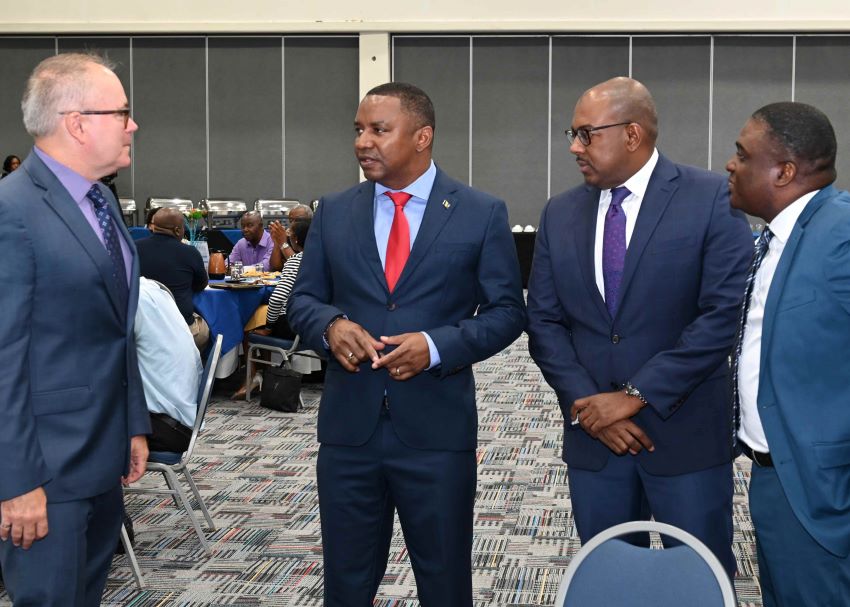
Minister of Home Affairs and Information, Wilfred Abrahams, is encouraging businesses to create a “bounce-back-ability” plan that incorporates employees’ ideas, as they plan for their resiliency in the event of a crisis or disaster.
Mr. Abrahams was speaking at the Barbados Chamber of Commerce and Industry’s Powering Through Crisis: Effective Risk Management and Crisis Recovery Strategies for Business Resilience forum, at the Lloyd Erskine Sandiford Centre, Two Mile Hill, St. Michael, today.
He stressed that crises and disasters are happening more frequently and have become more unpredictable, whether it is climate change, extreme weather events, heat waves, water scarcity, pandemics, or cyber-attacks. These hazards, the Minister pointed out, can severely impact the livelihood of businesses and people both directly and indirectly. Therefore, there is the need for resiliency.
“When I think of resilience, the term, ‘bounce-back-ability’ often comes to mind. It is the ability to undergo some significantly negative experience and yet be able to resume operations thereafter with a semblance of normalcy in a reasonably short period of time, … landing on your feet, so to speak,” Mr. Abrahams stated.
In order for businesses to build resiliency, the Minister noted that they must create effective strategies. However, he emphasised that mitigation measures cannot be addressed using a “one-size-fits-all approach”. He said it should be a solution that is tailor-made to suit the size and nature of the crisis.
In addition, Mr. Abrahams encouraged businesses to work collaboratively and share relevant information in a timely manner, as it could help to ensure a more informed and balanced approach to managing crises.
The Minister, who has responsibility for the Department of Emergency Management, listed some strategies that could assist in developing ‘bounce-back-ability’ plans. They include the creation of contingency plans.
“Your contingency plans should not be the brainchild of a chosen few … but you should consult as widely as possible and take as many different views into account….Your disaster management plans must be reviewed, updated and tested as necessary to ensure that they align with the ever changing hazard landscape,” Mr. Abrahams advised.
He also suggested that businesses should have alternate supply sources; set aside emergency funds; and use technology, for example, hybrid business operations.
“Effective risk management and crisis recovery strategies cannot be efficiently realised without strong collaboration between both the public and private sectors; it just can’t. Strong collaboration between the two sectors is imperative if we are to progress as a nation,” the Minister underscored.
Mr. Abrahams is urging other entities and community organisations to follow BCCI’s example of hosting such forums to sensitise their stakeholders, noting that it would aid in ensuring that the business community, as well as citizens by extension, are best positioned to navigate hazards with timely and deliberate planning, so that the country could “return to some semblance of buoyancy in the shortest time possible”.
BCCI’s President, James Clarke, agreed that it was important to have ongoing discussions in the area of disaster risk mitigation and business resilience, because “it is here; it is present; it can happen at any time and it can change our lives and our businesses in a heartbeat”.
